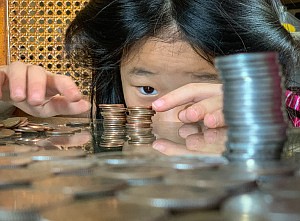HCDE Learning Expert Says Summer Academic Loss Heightened by COVID-19 Learning Lag
Style Magazine Newswire | 6/12/2020, 3:04 p.m.
Summer learning expert Dr. Lisa Caruthers concedes that traditional summer learning loss experienced by students will be amplified by COVID-19 learning lag. Other family issues come into play as summer 2020 approaches and the coronavirus continues to be a threat.
“Families are returning to work, and many cannot find summer care for their kids,” Caruthers said. “Kids are stressed from being at home with virtual learning duties without opportunities to play and engage with other children.”
Caruthers heads the Center for Afterschool, Summer and Enrichment for Kids, or CASE for Kids, a division of Harris County Department of Education. CASE for Kids provides resources, trainings and funding for afterschool programs, serving students in grades pre-k through 12 in afterschool programs in schools, childcare facilities and community centers throughout Harris County. As director, Caruthers is also a national presenter and proponent for out-of-school time and summer enrichment for children.
Summer learning loss, or “brain drain,” requires at least three weeks of reteaching last year’s lessons. However, learning loss due to COVID-19 adds more sludge into the learning loss equation.
During summer months, research supports that most students lose two months of math skills, and low-income students lose another two-to-three months in reading progress.
“This summer parents are anxious about enrolling their kids in enrichment camps due to concerns about the spread of the virus,” Caruthers said. “If they are staying at home, there is the issue of finding the right virtual camps and activities.”
“It’s a balance of using project-based learning such as hobbies like art and music in combination with virtual learning to maintain a balance while being home-bound,” she said. “During summer it’s important to pair academics with activities which help students create hobbies and potential career interests,” Caruthers said.
A recent study by Big Brothers Big Sisters reveals that the social and emotional well-being of children is critical to consider. Four in 10 youth polled reported depressive symptoms that health experts regard as moderate (27 percent) or severe (13 percent). Such feelings are especially common for girls, with one in two meeting one of these thresholds. Depressive symptoms are significantly less common when youth report a relatively high degree of support from a special person in their life.
Parents, too, are taxed both emotionally, mentally and physically as they create a balance between work and home. Caruthers, a mother of two children under age 10, fully understands the challenges.
There are several things she says parents can do to support learning during summer and slow the learning loss, Caruthers says:
*Identify your child’s interest in books and find books to feed it.
*Prime the mental pump. Museums are offering online options. Mix educational apps in with games your kids play. Create a list of educational YouTube videos. Talk about the videos later.
*Add incentives to your child’s learning with quality family time. After academic assignments, play a game as a family. Cook a favorite meal together. Make a wish list of places your child wants to visit this summer.
For summer learning resources, visit the CASE for Kids website and resource list:





